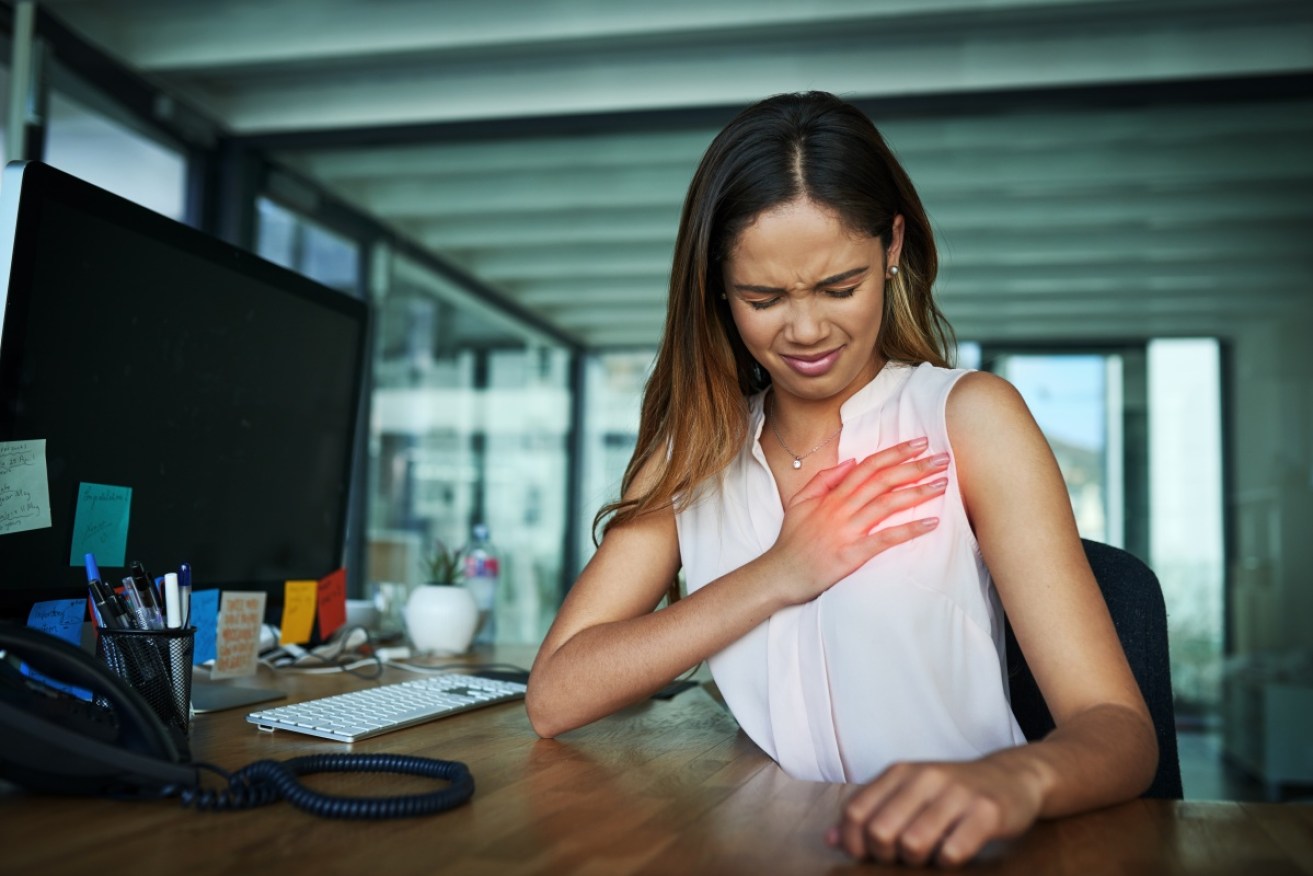The dangers of heartburn medications

Heartburn affects between 15 and 20 per cent of adults each week. Photo: Getty
You’ve just had to loosen your jeans after a three-course meal to relieve the burning under your ribs or in your chest – hello heartburn!
Overeating, exercising on a full stomach, pregnancy or irritable bowel are all possible triggers for this uncomfortable sensation affecting 15 to 20 per cent of adults every week.
“Heartburn is caused by pressure on a valve between the stomach and oesophagus, resulting in a burning sensation in your stomach, chest and throat,” says Melanie McGrice, accredited dietitian and director of Nutrition Plus Clinics.
“In some people, this valve opens more than it should, allowing acid to rise from the stomach into the lower oesophagus, causing chronic pain and inflammation.”
Enter medications called proton pump inhibitors (PPIs) which reduce stomach-acid production over prolonged periods. They are the most commonly prescribed medication to treat gastro-oesphageal reflux disease, or GORD. In Australia, common brands of PPIs are Nexium, Losec and Somac.
Dr Vincent Ho, gastroenterologist and senior lecturer at Western Sydney University, says PPIs are not to be confused with common over-the-counter antacids.
“They are different to antacids such as Mylanta, which neutralise stomach acid to very quickly alleviate heartburn, often within seconds of ingestion,” Dr Ho says.
Instead, PPIs work by stopping the production of stomach acid to help reduce inflammation and heal ulcers.
Since the introduction of PPIs in the 1990s, the use of these popular drugs has increased 1000 per cent, according to NPS Medicinewise.
Between 2013 and 2014, there were more than 19 million prescriptions for PPIs in Australia.
Some PPIs are also now available over the counter in chemists.
Medications linked to other health problems
Some people use PPIs for years at a time, which increases the risk of long-term side effects. In recent years, these medications have also been linked to a number of serious health issues ranging from heart problems to bone fractures.
A Danish study showed that the higher the intake of heartburn medications the higher the risk of a first time stroke.
Stomach acid plays an important role in helping your absorption of calcium. This may explain why people taking PPIs appear to have a higher risk of bone fractures, according to another study.
“Absorption of other nutrients such as B12, iron and Vitamin C may also be reduced,” Dr Ho tells The New Daily.

From 2013 to 2014, there were more than 19 million prescriptions for PPIs in Australia. Photo: Getty
Prolonged use has also been tied to problems with gut bacteria, gastroenteritis and kidney issues.
“But clearly we need more research to fully understand whether the numerous health issues linked to PPIs are due to the medication or other factors,” Dr Ho says.
Despite the risks, heartburn medication is important in the management of GORD, which is typically characterised as persistent acid reflux that occurs more than twice a week.
GORD can affect a person’s quality of sleep and reduce their quality of life.
If left untreated, GORD may increase the risk of developing oesophageal cancer.
So, if you have been prescribed PPIs it’s important to speak to your doctor first. A GP can help different ways to reduce your heartburn medication safely and slowly.
“Suddenly stopping PPIs can also lead to rebound heartburn, causing the condition to worsen,” says Dr Ho.
Other helpful strategies include maintaining a healthy weight, ceasing smoking and avoiding heartburn trigger foods, such as alcohol, spicy meals, citrus and caffeine.
Eating regularly is also very important, Ms McGrice says.
“I often see people whose heartburn is triggered or worsened by skipping breakfast, drinking lots of coffee on an empty stomach, eating on the run and having a huge meal at the end of the day.”
She advises heartburn sufferers to eat six smaller meals to see if the lower volume of food helps reduced the reflux.
“Sitting upright during and after a meal and eating slowly and mindfully with small fork and small mouthfuls, chewed well, can also help reduce heartburn symptoms,” Ms McGrice says.








